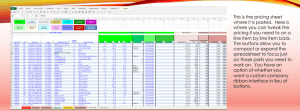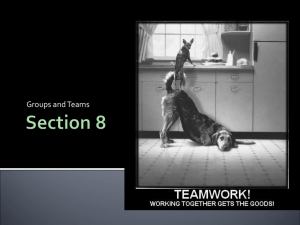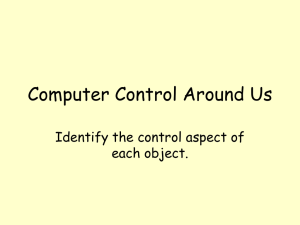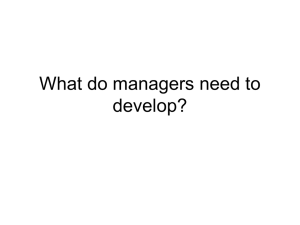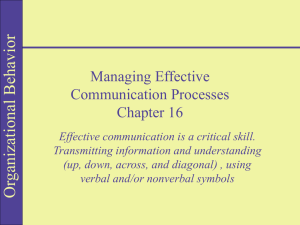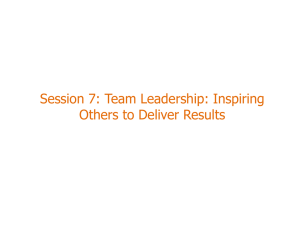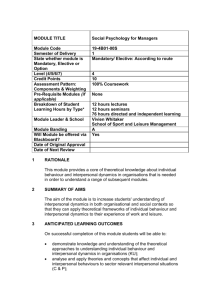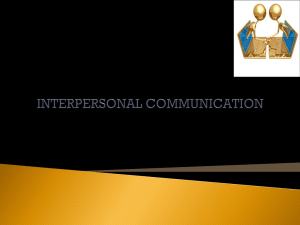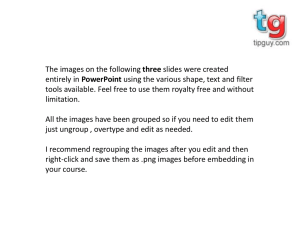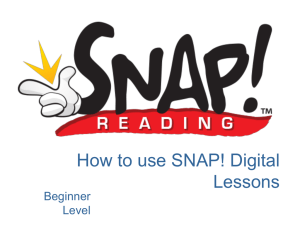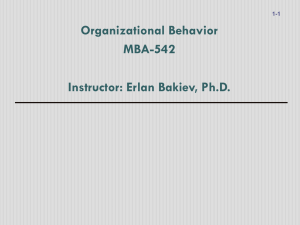conflict
advertisement
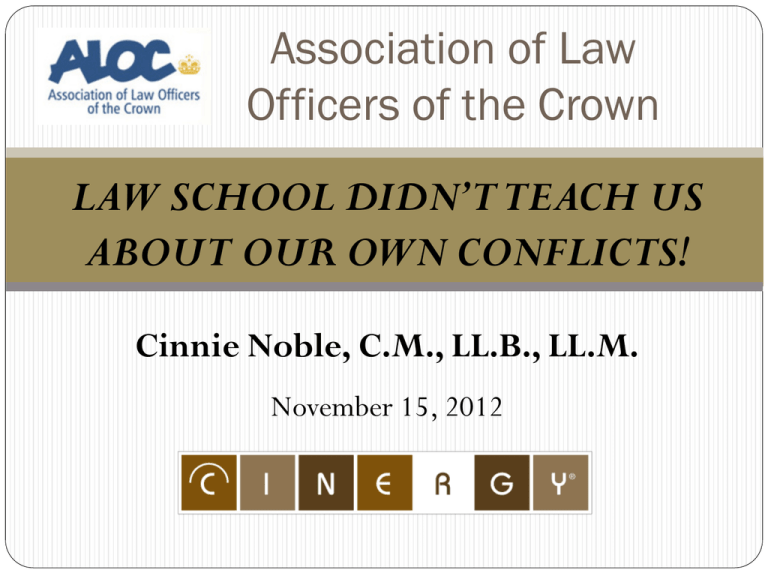
Association of Law Officers of the Crown LAW SCHOOL DIDN’T TEACH US ABOUT OUR OWN CONFLICTS! Cinnie Noble, C.M., LL.B., LL.M. November 15, 2012 OBJECTIVES To explore what interpersonal conflict is about To consider the notion of conflict rulebooks To discuss the ingredients of ‘conflict intelligence’ To examine the ‘cycle of conflict’ To increase awareness about the impact of conflict on our brains 2 What is first word you think of when you hear the word conflict? 3 Interpersonal conflict has been defined as: Any situation in which interdependent people have apparently incompatible interests, goals, principles or feelings. 4 Another definition: A condition between two interdependent people in which one or both feel angry at the other and perceive the other as being at fault. 5 3 Main Components of Interpersonal Conflict At least one person perceives that incompatibilities exist with another person. At least one person experiences negative emotions about another person and a specific interaction with him or her. The reaction to the other person prevails indefinitely and often builds over time. 6 What is one message you received as you were growing up that still prevails about the way to manage interpersonal disputes? 7 OUR CONFLICT RULEBOOKS 8 Do you think we can change the way we engage in conflict? 9 Conflict Engagement vs. Conflict Management 10 What does the expression Conflict Intelligence mean to you? 11 Constructive Responses to Conflict Perspective Taking Creating Solutions Reaching Out Reflective Thinking Delay Responding Adapting (according to the Conflict Dynamics Profile®, www.conflictdynamics.org) 12 Destructive Responses to Conflict Winning at all costs Displaying Anger Demeaning Others Retaliating Avoiding Yielding Self-Criticizing (according to the Conflict Dynamics Profile®, www.conflictdynamics.org) 13 When it comes to conflict, what do you think the expression “Hot Buttons” refers to? 14 What pushes your “Hot Buttons” that leads to conflict? That is, what is one example of something that someone says (doesn’t say) or does (doesn’t do) that provokes you? 15 “HOT BUTTONS” Unreliable Self-centered Overly analytical Abrasive Unappreciative Untrustworthy Aloof Hostile Micro-managing 16 (according to the Conflict Dynamics Profile® www.conflictdynamics.org) Conflict occurs when we perceive a value, need, or aspect of our identity is being undermined, threatened, or challenged. 17 INTERNAL Hot Button/Trigger Point ↓ Value, Need, Aspect of Identity ↓ Impact (Internal Reaction) ↓ Assumptions 18 EXTERNAL Boundary ↓ External Reaction ↓ Consequences 19 20 © CINERGY® Coaching, www.cinergycoaching.com Albert Einstein 21 “Problems cannot be solved by the same level of awareness, thinking and consciousness that created them.” Examining Your Hot Buttons a) Name one Hot Button 22 b) Which value(s), need(s) and/or aspects of identity was undermined when provoked in that way c) What was the impact on you when provoked in that way (give at least 2 words to describe) d) What do you think the other person’s motives were for provoking you in that way? e) Other possibilities re: d) “When you change the way you look at things, the things you look at change.” Wayne Dyer 23 NEUROSCIENCE Our Brains in Conflict 24 SCARF Model Status Certainty Autonomy Relatedness Fairness (according to David Rock, “Managing with the Brain in Mind”) 25 You can change your habits (if you want) 26 NEUROPLASTICITY 27 Neurons that fire together, wire together. 28 29 THANK YOU Cinnie Noble www.cinergycoaching.com cinnie@cinergycoaching.com Blog: http://www.cinergycoaching.com/blog/ Peacebuilding – one person at a time 30
